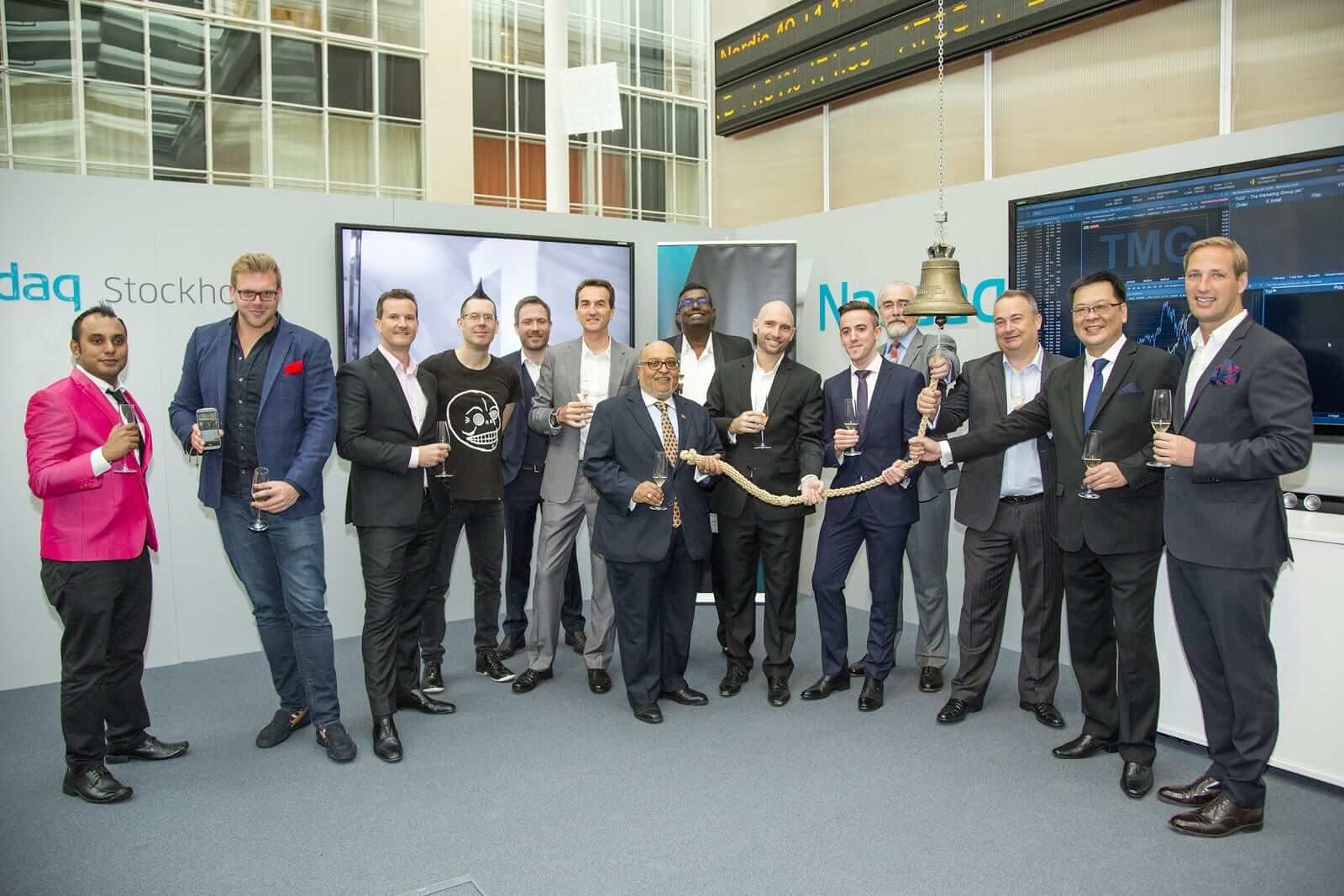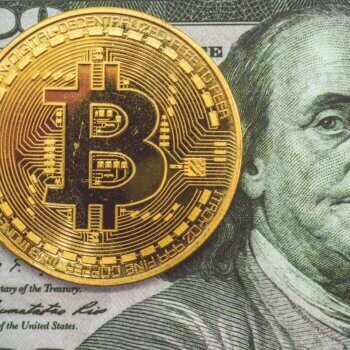In business it is often said that any decision is better than none. Even a bad decision can move you forward. It’s probably a good theory, but some decisions can be really, really expensive. One specific decision we made ended up knocking $250m off the market capital of our business and nearly ended up costing us everything we had.
The Idea
In 2015 our little company started working on a project that we believed, and still believe, will change the landscape for small businesses around the world and enable them to compete with the big boys, win bigger contracts, hire more senior people and reward those that are creating the most value. The idea, which we called ‘agglomerate’, was to create a publicly listed company and allow great small businesses to swap their private stock for public stock yet keep full control of their own entity. A collaborative IPO but leaving the entrepreneurs in charge and incentivised to build their business.
We knew it would be tough to get it up and running. It was. We thought once it was up and running it would be much easier. It wasn’t.
The Glory Days
As you can read here, after many false starts, we finally managed to get the company listed. What came next over the following quarter was pretty exceptional. As we announced deal after deal bringing in great companies to the group the model snowballed in front of our eyes. On the one hand the share price soared as investors clamoured to get hold of the relatively small amount of free floating stock. On the other hand more and more companies were knocking on our door wanting to join the group and with every deal we announced, more people wanted the stock. Amongst all that we were also dealing with a flurry of media requests, speaking requests, people wanting to work for us, people wanting to sell us stuff, and institutions wanting to talk about giving us money.
If I was to pick a moment from this time it was when Nasdaq invited us to their HQ in Time Sq New York and put our names up outside on a 5 storey digital screen, all whilst we were being filmed by a documentary crew.
It was heady times, no doubt, but the growth was putting a huge financial strain on us. Whilst we were keen to keep bringing in more great companies and announce more great deals we were looking at a shortfall of tens of millions of dollars to do it.
Despite the fact our little business had soared past $100m market cap and then a month later $200m, banks were, understandably, nervous loaning money to a company before it has published its full first year results.
Fortunately, or not as it would turn out, there were no shortage of other financial institutions who were more than happy to loan us money against the value of our personal shares. This is a widely known practice. Unfortunately, as we would later learn, it is also well known for some of it’s more shady operators. However, someone we trusted recommended an Institution in the US and having met with them a couple of times we decided to go ahead with a leverage deal.
They would ‘hold’ 3m of our personal shares (valued at the time at €24m) and in return would loan us €9m which we could use to close a couple of the deals we were in late stage discussions with. At the end of 2 years we would give them back the €9m plus interest and they would give us back the shares. All pretty straight forward.
The Mistakes
In retrospect, whilst we got a lot of things right, we also got a few things wrong. Our lack of experience in the public markets, a very junior and inexperienced team on the ground and a constant firehose of opportunities, criticisms, congratulations, and conflicting advice was not conducive to over delivering to our various stakeholders. The fact that our whole team had been working 7 day weeks in the run up to the IPO and then moved to working days and nights in the post IPO period doing the acquisitions did not help anyone either. Sleep deprivation is not a good state to make healthy decisions.
Sometimes we communicated too much to the market (sorry Nasdaq!), other times not enough. We did deals that, looking back, weren’t as smart as they seemed. Our contracts weren’t always up to scratch and often required multiple drafts, and our faith in others was unrealistic. We threw money at problems that would have been better ignored and ignored problems that would turn out to be critical. And we had a constant stream of people coming in to ‘advise’ us on everything we did.
Whilst it would be easy to point fingers at those ‘professional’ advisors, the reality is that like many things in life, we were getting diametrically opposing advice from advisors on almost every topic. Our mistake, which we own 100%, was choosing to listen to those that told us what we wanted to hear and ignore the rest.
Yet often the only way you can tell the difference is through experience. And the way you get that experience? Mistakes…
The ‘Alleged’ Crime
Back in the craziness of that first 90 days we had completed the deal with the US based Institution, the money had been promised and consequently we were able to announce a couple more great acquisitions that would be joining the group. The pace of activity was no less frenetic and we were desperately trying to staff up to cope with demand.
However, behind the scenes something wasn’t quite right with the share price. Having gone up like a sky rocket we were well prepared for people ‘taking their wins’ and selling off and sure enough many people did just that having made, in some cases, 700 or 800% returns on their investments, but it seemed like something more sinister was at play.
Our retail investors were crying foul. Someone had a massive sell order in the market and appeared to be deliberately driving the share price down. At first we dismissed it, but as the share price continued to tumble each day we launched an investigation. The obvious first stop was the institution we had just sent 3m shares to, but they were contractually obliged not to touch those shares. They even sent us a screenshot of the account in a 3rd party’s hands to show the shares were safe.
The impact on our business was very real and I will remember those days as some of the most stressful, and sleepless, I have ever been through. There were only 2 options; The Investment Bank we were using, but after accusing them the MD immediately flew out to Singapore to explain to us in person why that would never happen. The other option was one or more of the entrepreneurs in the group, but they were all locked up and so didn’t even have the power to sell shares.
Despite living in a world of real-time updates, in Europe where our stock was listed, you have to wait one month before EuroClear will give you a breakdown of who is holding your stock (not the individual accounts, just the banks). Blockchain couldn’t come fast enough, but over 2 months it became clear that despite their denials, the Institution that was supposedly holding our stock in escrow had actually been dumping it in the market.
Needless to say they also weren’t providing us the cash they promised…
(The use of the word ‘alleged’ in relation to the Crime and other softeners is on advice pending further legal action)
The Unravelling
The Agglomeration model was made as robust as we could make it. The companies we worked with carried no debt, they were all profitable, and were run by good entrepreneurs who had worked hard to deliver value to their clients. We weren’t betting on startups and we weren’t betting that these companies would over deliver in the future, just that they would stay about the same. The companies were also diversified over different niches and territories so as best to protect the wealth of the group.
Yet despite the resilient nature of the model there are few PLC’s out there that can withstand an onslaught like the one we were currently under. With 3 million unauthorised shares flooding the market the share price went into freefall. Even our most loyal investors got spooked and wanted out before they lost all their gains.
Whilst we had concern for our investors, our primary concern was for the founders that had joined (who also represented the biggest investor base). Unfortunately as the stock continued to tank several of the later joining companies decided to back out of the deal. This was supposed to be a collaborative IPO so if they wanted to exit we weren’t going to force them to stay, yet the knock on effect to the remaining businesses was like a kick to the guts.
As the market saw deals unravelling that put ever more downward pressure on the stock price and consequently our pipeline of future deals began to dissolve in front of our eyes.
Under this sort of pressure more mistakes crept in. Announcements were rushed through to the market that arguably should never have been made. Desperate attempts to rustle up more cash and shares for existing founders often led to more problems than solutions. Our own efforts to show support for the stock by investing more was even seen by some as ‘profiteering’.
As the year came to an end there was one bit of advice that was coming through loud and clear. We needed to step down from the Board and bring in some ‘professionals’ to restore investor confidence.
The Pain
As 2017 started it was quite clear that we were still a long way from turning the corner. We removed ourselves from the Board and bought in decades of experience whose job it was to try and restore the faith of the battered investors and the Founders of the group who still believed in the model, knew their companies were good, and couldn’t understand how the group was so undervalued. Their first step was to try to ‘rip off the bandaid’ and get all the bad news out in one go so that they could then build it back up from the bottom up. They have a difficult task and we wish them well.
18 months after it listed, The Marketing Group (TMG.ST) is charting a different path. Rejecting the agglomeration model it is currently focused on organic growth and product innovation.
As for the ‘alleged’ crime? We have spent a large amount of time and money chasing this so far. Because of the International nature of white collar crime it is very difficult to find anyone interested in supporting us. One of the employees of the Institution, when confronted with the proof we had collected, has since turned whistleblower and resigned. He has lodged with his lawyer all the internal proof we could ever need to have his former boss sent to jail. Yet that will cost us further hundreds of thousands of dollars and whilst it is the right thing to do, will never recover the damage that has been done.
When we talk about a $250m loss of Market Capitalisation it is a pretty abstract concept to most. For the guy that committed the ‘alleged’ act of fraud and walked away from it with tens of millions in his pocket, he probably sees it as a relatively victimless crime. But each one of those dollars has a story behind it. For us we got to hear those stories every single day. In many cases it was our friends, family and colleagues who suffered when the share price tanked. The cumulative amount of loss might seem abstract, but to individuals who owned the stock, it was very real.
Although many people suffered from the results of that one act, it was ultimately our responsibility to have created that wealth and it was our responsibility when it was destroyed again. Had this been a one off, it would have been easy to walk away, but we never approached this as a one time deal. The reason we were doing this work was because we genuinely believe that small businesses deserve a fair shake of the stick. As painful, and as ultimately expensive, as TMG became, what kept us going and having conversations with dissapointed founders, angry investors and with confused staff day after day was that we still had faith in the idea.
The Lessons
For Unity Group, our little company that put this together and has fought for this harder than anyone, there are 2 key lessons that we have taken from this which will guide us in the future. The first is ‘funding’ related, the second is ‘everything else’.
Funding
The start of all our problems came through a lack of funding and the decision to use what turned out to be a criminal to get access to capital. We were naive to the costs involved and in all future agglomerations we will be raising plenty of capital in the markets so that we have a war chest for the future. Raising money for small businesses is nearly impossible but for decent sized PLC’s it is relatively easy. We now have a Board of Advisors that include some of the brightest on Wall Street and the city of London advising us. Never again would we trust such a large concentration of shares to any one individual that might be tempted to choose greed over the law!
Everything Else
There is no doubt we made mistakes the first time around. However, as we swelled the ranks of our internal team we bought in many very talented managers who re-wrote contracts, improved the DD process and set standards and procedures for communications. The model itself has evolved through time as we’ve learnt what works and what doesn’t. There are subtle but important changes to the order in which we do things that again will prevent, or at least mitigate against, the black swan events.
We got to go through our model being put under the most extreme pressure we could ever have imagined and whilst it wasn’t pretty, we still have a group of great little companies that are working well together, winning big contracts and recruiting senior staff. The model itself is resilient but like any innovation, it gets sharper and better on the grindstone of the market.
The Future
Any invention, innovation or new product is normally a poor imitation of the final solution it becomes. We learnt from the companies we worked with and learnt more from those that wouldn’t work with us. We learnt from our investors and again from the investors that wouldn’t work with us. And we learnt about ourselves and our team, what our capabilities were and what areas were best left to others.
The problems facing good, well run small businesses remain the same and agglomeration remains the best model we know of to help solve those problems. The markets will change, our model will adapt, but fundamentally we are here to help small businesses scale more effectively. The impact on them, their teams, their clients and the greater economy can be game changing for all involved.
One decision to trust someone that turned out to be untrustworthy cost us $250 million in market capitalization, but it actually cost us far more in opportunity. It was an expensive lesson. However, the real cost would be far higher if we didn’t learn from it and push forward to continue what we started.
Every small business we work with has been through it’s own version of this rollercoaster and the best come out the other side stronger and more determined than ever. We are lucky enough to be able to work with those businesses, compare war stories and then push forward using everything we have learnt to take them to the next level.
And that is the most important business decision we can make.
Author: Callum Laing
Callum Laing is a Partner at Unity Group Private Equity and is also World Business Angel High Commissioner for Singapore. He is co-author of the best selling book ‘Agglomerate – Idea to IPO in 12 months’. You can download a free copy here: CallumLaing.com/WBAF
—
This article is part of the World Business Angel Forum media partnership with AsianEntrepreneur.org
If you would like more information about WBAF, please contact Callum Laing WBAF High Commissioner for Singapore. [email protected]

































